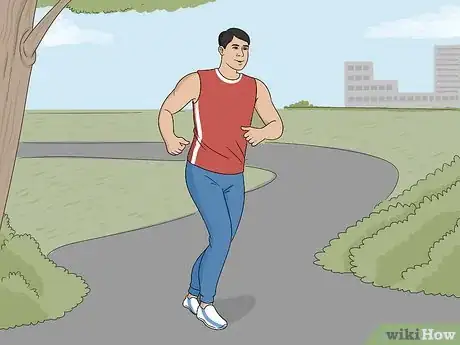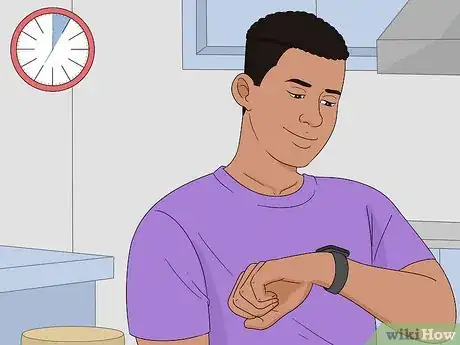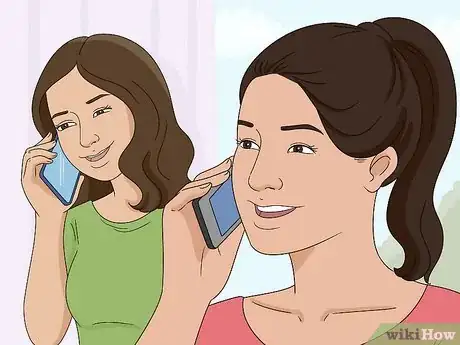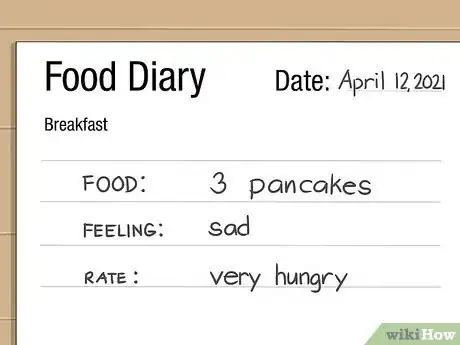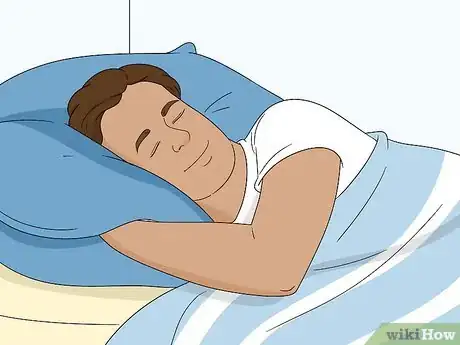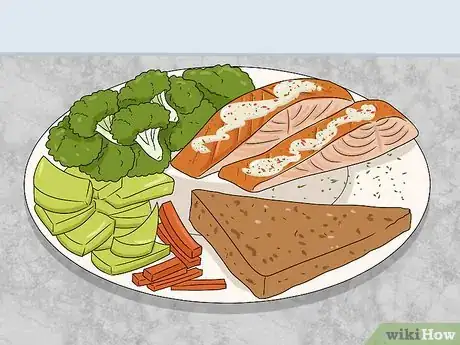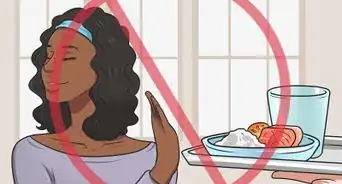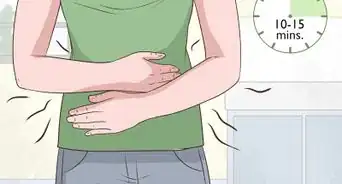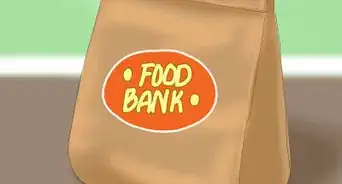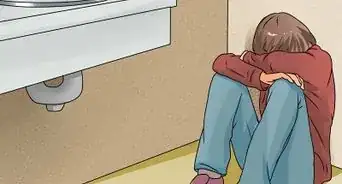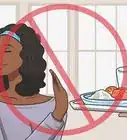This article was co-authored by Dina Garcia, RD, LDN, CLT and by wikiHow staff writer, Hannah Madden. Dina Garcia is a Registered Dietitian, Nutritionist, and the Founder of Vida Nutrition and Conscious Living, her private practice based in Miami, Florida. Dina specializes in helping yo-yo dieters and binge eaters overcome food guilt, practice self-love, and rediscover self confidence. She has over 15 years as a dietitian. She received a BS in Dietetics from Ball State University and completed her supervised dietician practice at California State University, Fresno. She is certified as a Registered Dietitian (RD) by the Commission on Dietetic Registration and is a Florida Licensed Dietician/Nutritionist (LDN).
There are 9 references cited in this article, which can be found at the bottom of the page.
This article has been viewed 408,065 times.
If you’re trying to curb your snacking or stop overeating, ignoring your body’s hunger signals can be tough. While it might take a little bit of self control and some patience, you can maintain a healthy lifestyle without giving into cravings. If you feel like your hunger or your goal of ignoring your hunger is becoming a problem, consult a doctor to make sure you’re getting enough nutrition on a daily basis.
Things You Should Know
- Control hunger by drinking more water, incorporating green tea, and hitting all of your key nutrients (through foods like fruit and lean meat).
- Distract yourself by diving into your hobbies and relationships—for instance, try listening to a long podcast.
- Take deep breaths in through your nose and out through your mouth to curb cravings.
Steps
Warnings
- If you’re ignoring your hunger to starve yourself or restrict your eating, it can become unhealthy. Consult your doctor or a nutritionist to make sure you’re getting enough calories every day.⧼thumbs_response⧽
References
- ↑ http://www.ncbi.nlm.nih.gov/pmc/articles/PMC2927017/
- ↑ https://psychcentral.com/blog/5-ways-to-stop-yourself-from-eating-when-youre-not-hungry#2
- ↑ https://psychcentral.com/blog/5-ways-to-stop-yourself-from-eating-when-youre-not-hungry#2
- ↑ https://www.eatthis.com/stop-thinking-about-food/
- ↑ https://www.helpguide.org/articles/diets/emotional-eating.htm
- ↑ https://www.eatthis.com/stop-thinking-about-food/
- ↑ https://www.eatthis.com/stop-thinking-about-food/
- ↑ https://psychcentral.com/blog/5-ways-to-stop-yourself-from-eating-when-youre-not-hungry#2
- ↑ http://greatergood.berkeley.edu/article/item/better_eating_through_mindfulness
- ↑ Dina Garcia, RD, LDN, CLT. Registered Dietitian-Nutritionist. Expert Interview. 1 April 2020.
- ↑ https://www.mayoclinic.org/healthy-lifestyle/weight-loss/in-depth/weight-loss/art-20047342
- ↑ https://www.helpguide.org/articles/diets/emotional-eating.htm
- ↑ https://www.mayoclinic.org/healthy-lifestyle/weight-loss/in-depth/weight-loss/art-20047342
- ↑ https://www.hsph.harvard.edu/nutritionsource/healthy-eating-plate/
- ↑ Dina Garcia, RD, LDN, CLT. Dietician/Nutritionist.
- ↑ Dina Garcia, RD, LDN, CLT. Dietician/Nutritionist.
- ↑ Dina Garcia, RD, LDN, CLT. Registered Dietitian-Nutritionist. Expert Interview. 1 April 2020.
About This Article
To ignore hunger, try drinking a glass of water, which can make you feel full without eating. You can also drink green tea, which acts as an appetite suppressant and increases your energy levels. Additionally, try hiding your food in your cupboards, and avert your attention from food commercials, as just seeing food can make you hungry. You can also try seasoning your meals with cayenne pepper, which contains the appetite suppressant capsaicin. For more tips, including how to reduce hunger with the right diet, keep reading!



